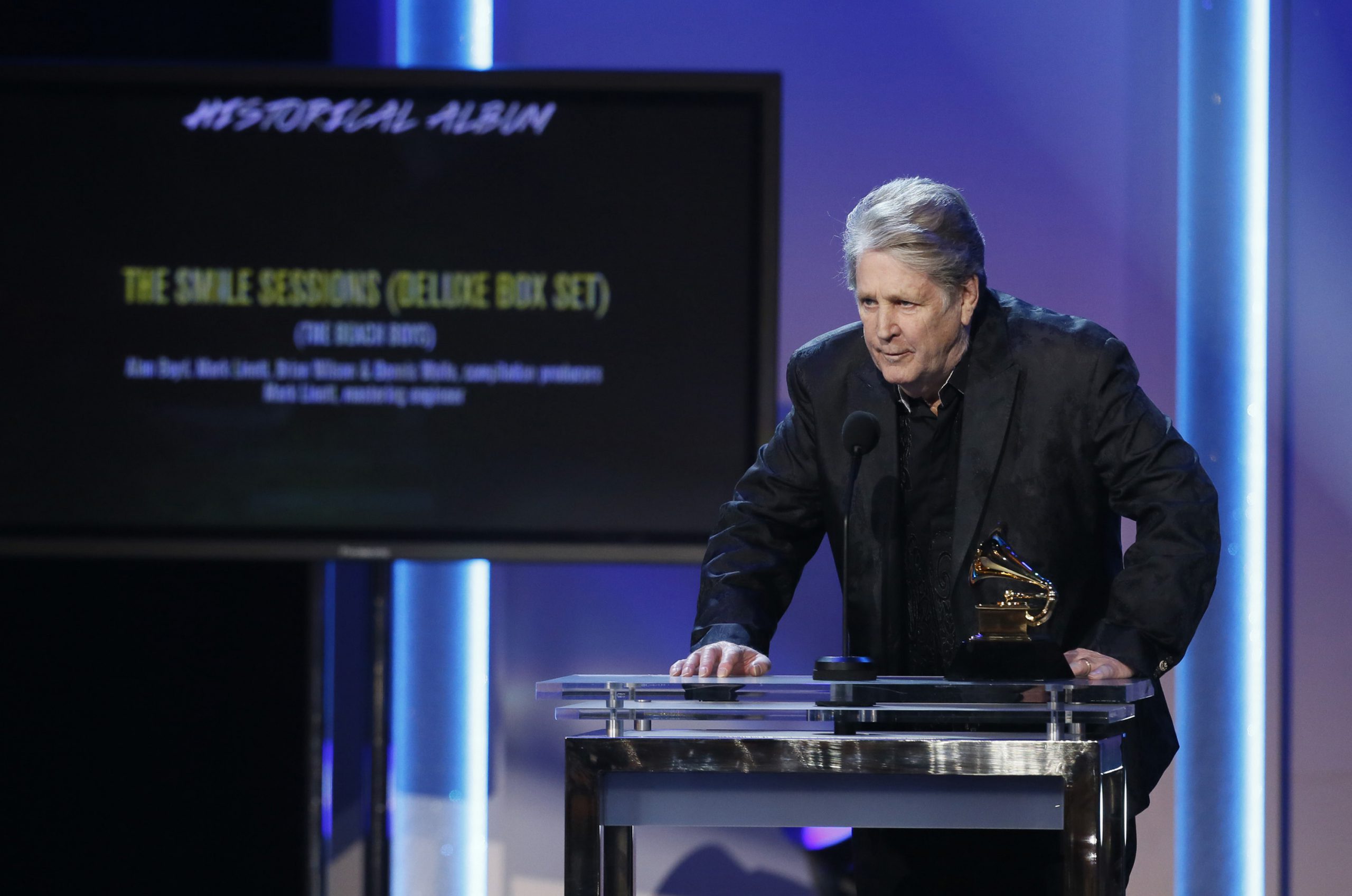By Stephen B. Armstrong
As primary songwriter for the Beach Boys in the ’60s, Brian Wilson composed some of the best-remembered pop songs ever recorded, including “California Girls,” “Help Me, Rhonda,” and “Good Vibrations.” But as the ’70s progressed, addictions to drugs, cigarettes and junk food, along with schizophrenia, impaired his ability to write new music.
In the mid-’80s, however, after years of psychiatric treatment, Wilson reemerged in public. He looked better. He was clean and sober. Medication helped him manage the distracting voices in his head. And his own voice, despite years of neglect and damage, could still hit notes in gorgeous fashion.
Sensing audiences would respond favorably to a solo album from the reclusive rock star, executives at Sire Records approached Wilson with a recording deal. Despite having written and produced hundreds of songs, Wilson had never released a full-length LP under his name alone, so he accepted the offer.
Sire sent in one of its staff producers, Andy Paley, to supervise the project. A veteran of the New York City punk scene, Paley had played guitar and sung on records with the Ramones and the Patti Smith Group. He was a longtime fan of the Beach Boys, too.
Along with co-producers Lenny Waronker and Russ Titelman, Paley recruited a multitude of session musicians to work with Wilson. Wilson, in turn, went on to craft tracks with the likes of ELO’s Jeff Lynne and the Dream Academy’s Nick Laird-Clowes, who both shared his affection for polyphonic vocal arrangements.
The collection of songs that resulted from this effort, “Brian Wilson” (1988), stands out today as one of the most extravagant — and beautiful — rock records released during the Reagan era.
Packed with songs that address many of the same themes that permeated the Beach Boys catalogue — love, loneliness, even astronomy — “Brian Wilson” also features extensive use of what was cutting edge recording technology back in the ’80s.
Synthesizers, samplers and drum machines seep through nearly every song, imbuing them with a quasi-futuristic tone that betrays at once the influence of the experimental electronic composer Wendy Carlos and New Wave acts OMD and New Order.
The album’s standout track is “Love and Mercy,” a secular hymn about the need everybody has for being treated and treating others with kindness: “I was lying in my room / And the news came on TV / A lotta people out there hurtin’ / And it really scares me / Love and mercy, that’s what you need tonight.”
Longings for comfort and companionship surface on “Let it Shine,” as well, the song he wrote with Jeff Lynne. On this track, the middle-aged Wilson sings about a romantic infatuation: “There comes a burning fire / It fills me with desire / And all my troubles disappear.” As the song proceeds, a wall of electronic sound shot through with surf-style guitar riffs and descending piano runs pulses around his peerless voice.
Now in his 70s, Wilson still records and tours — he played Tuachan Center for the Arts this past summer. Yet the dozen or so solo albums he’s released since “Brian Wilson” too often, sadly, pander to listeners who enjoy adult-contemporary soft rock. They are very safe, that is, and very commercial.
Not that all the later releases are duds. “Smile,” which came out in 2004, is a true thing of beauty. Yet in terms of emotion and invention, nothing Wilson has recorded as a solo act has ever managed to reach the same aesthetic heights as his quixotic and lovely debut.
Stephen B. Armstrong co-hosts “Maximum Rock ‘n’ Roll with Katie ‘n’ Steve” Thursdays at noon on Radio Dixie 91.3.




